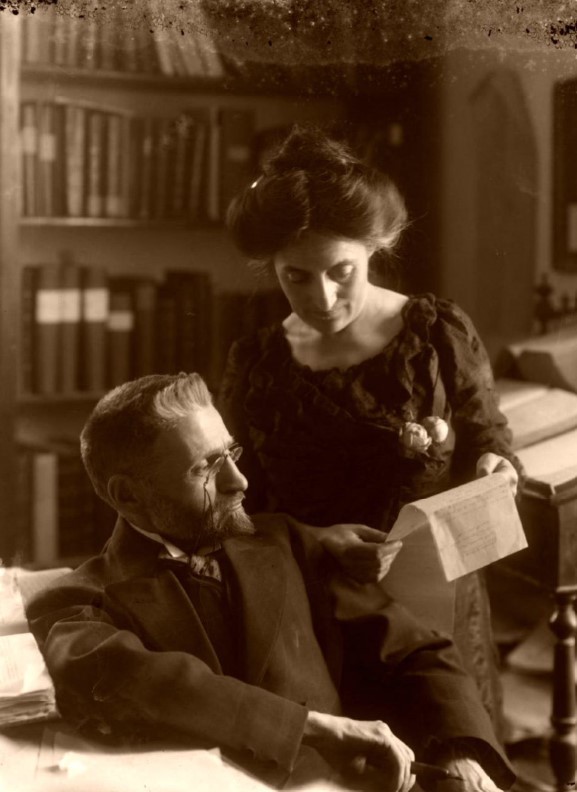And the Word became flesh and dwelt among us, and we have seen his glory, glory as of the only Son from the Father, full of grace and truth (John 1:14).
So the Apostle John wrote in the first chapter of his Gospel record, but what exactly did he mean? It is a fact that there are matters connected with God’s ways which are ‘too wonderful’ for us, things we ‘cannot attain’ (Psalm 139:6).
Indeed, if we look closely at life and deal honestly with its problems, we are bound to confess that even the most ordinary happenings—things we see and hear about every day—can be incomprehensible. We may accumulate facts and classify them, and we may discover some of the laws which God has fixed in the substance of the universe. We may perceive the relationship between one fact and another, but we cannot understand the essence of everything, by any means.
So, it should come as no surprise if the greatest of all the Creator’s works excites our sense of wonder and causes us to marvel at what was accomplished, when ‘the Word became flesh’.
The Son of God
Here are just some of the ways in which Jesus Christ is described in the Bible:
• the only Son from the Father (John 1:14)
• the image of the invisible God, the firstborn of all creation (Colossians 1:15)
• the Lion of the tribe of Judah (Revelation 5:5).
Such was the Lord Jesus Christ, and surely he should excite our sense of wonder and appreciation even more than the incomprehensible facts of ordinary life.
But, while we cannot reasonably expect to have an understanding of Christ and his mission other than by means of what is shown to us in the Bible by God, we must certainly not surround the subject with humanly devised mystery.
The proper course is to observe and keep in mind all that is revealed in the Bible, trying to find the proper place for every fact. Then the subject will gradually take shape until, at last, it becomes possible—even easy—to accept all parts of it as we accept the familiar but marvellous facts of our everyday experience.
Why ‘Son of God’?
We need to remember that, according to the Bible, Jesus Christ was conceived by means of the Holy Spirit. As the angel Gabriel said to Mary, ‘The Holy Spirit will come upon you, and the power of the Most High will overshadow you; therefore the child to be born will be called holy—the Son of God’ (Luke 1:35).
Jesus:
• was born a human baby (Luke 2:7)
• increased in wisdom as he increased in stature (v. 52)
• was acknowledged as the beloved Son of God at his baptism (3:22); and
• was given the power of the Spirit without measure (John 3: 34).
He performed works which were far beyond the power of all others, and spoke words such as no other could. Repeatedly, however, Jesus insisted that he could do nothing of himself (John 5:19). It was the Father who had sent him who did the works. Even when Jesus gave expression to his most astonishing claims, he made it clear that his power and authority all came from the Father. He once declared, ‘For this reason the Father loves me, because I lay down my life that I may take it up again. No one takes it from me, but I lay it down of my own accord. I have authority to lay it down, and I have authority to take it up again.’ But immediately he added, ‘This charge I have received from my Father’ (John 10:17–18).
Repeatedly he spoke of the Father who had sent him and whose will must always be done. Never once did he claim an equality with God, his Father; quite the contrary. The Bible writers confirm this in their descriptions of Christ’s power. ‘In Christ,’ the apostle Paul wrote, ‘God was reconciling the world to himself’
(2 Corinthians 5:19). And, looking beyond his mortal life to his glory and power, the apostle Peter said that God would send Jesus Christ at ‘the time for restoring all the things about which God spoke by the mouth of his holy prophets long ago’ (Acts 3:21).
All these wonderful attributes of Jesus Christ are comprehended in the apostle John’s remarkable statement that ‘the Word became flesh and dwelt among us’.
God’s Creative Power
The idea of the Word of God as the expression of His creative power is presented in many parts of the Bible, not just in John. In the letter to the Hebrews the apostle declares that ‘The universe was created by the word of God, so that what is seen was not made out of things that are visible’ (11:3).
This is a reference back to the first chapter of the Bible—the first move in the establishment of order—when ‘God said, “Let there be light,” and there was light’ (Genesis 1:3).
Such was the power of God’s Word. ‘He spoke, and it came to be’ (Psalm 33:9). The descriptions of the Spirit of God in many passages of the Bible sustain this great thought.
• The Spirit of God hovered over the face of the waters in the work of creation (Genesis 1:2).
• God sends forth His Spirit, and life is created. When He takes away their breath, they die (Psalm 104:29-30).
By this emanating power, God knows all things and accomplishes everything according to His will. His Word is His source of expression. It is cause to wonder and marvel, that God made His Word flesh when He sent His Son to the world.

Islip Collyer



